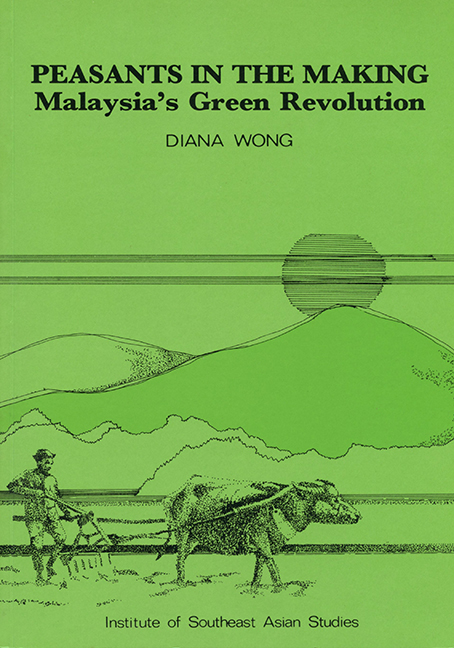Book contents
- Frontmatter
- Contents
- Acknowledgements
- Part I The Framing of the Study
- Part II The Anatomy of the Village
- Part III The Transformation of the Village Economy
- Chapter 7 The Production Cycle and the Division of Labour
- Chapter 8 Landownership and Land Tenure
- Chapter 9 Rural Indebtedness and the Marketing of Padi
- Chapter 10 Patterns of Change in the Non-Padi Economy
- Part IV The Transformation of Village Society: The Unfolding of Social Differentiation
- Part V Conclusion
- Appendix I Research Methodology
- Appendix II Questionnaire
- Bibliography
- THE AUTHOR
Chapter 7 - The Production Cycle and the Division of Labour
from Part III - The Transformation of the Village Economy
Published online by Cambridge University Press: 21 October 2015
- Frontmatter
- Contents
- Acknowledgements
- Part I The Framing of the Study
- Part II The Anatomy of the Village
- Part III The Transformation of the Village Economy
- Chapter 7 The Production Cycle and the Division of Labour
- Chapter 8 Landownership and Land Tenure
- Chapter 9 Rural Indebtedness and the Marketing of Padi
- Chapter 10 Patterns of Change in the Non-Padi Economy
- Part IV The Transformation of Village Society: The Unfolding of Social Differentiation
- Part V Conclusion
- Appendix I Research Methodology
- Appendix II Questionnaire
- Bibliography
- THE AUTHOR
Summary
THE TRADITIONAL CONTEXT OF PADI PRODUCTION
The extensive monoculture of padi in the Kedah Plains is directly dependent on the availability of water. However, no traditional system of irrigation was developed to regulate the supply or access to water. Padi cultivation was entirely dependent on the rainfall brought regularly by the South-east Monsoon. During the dry season, the clay surface of the Plain dried up so completely that no crop whatsoever could be planted. Consequently,
the onset of the rains is so important in rendering the surface workable that it fixes the time when cultivation of any sort can begin. Simultaneity is thus the tendency over the whole Plain for all fieldwork and no new plant can be introduced here if it requires setting earlier than the rains of May-June or unless it can tolerate standing water for long periods during the September-October season and need not be harvested until the fields begin to dry out in January. These narrow environmental limitations have led to monocultivation of padi of an eight-month term, operations which occur simultaneously over the whole Plain [author's emphasis].
The social organization of padi cultivation had thus to contend firstly, with individual household surplus management and/or consumption ties with other village households or sources of credit outside the village economy in order to tide over the lean and hungry months; secondly, inadequacy of household labour for harvesting in particular, due to the uniformity of the ripening process. Production ties thus had to be established with other households either in the form of exchange or hired labour.
On the other hand, however, the absence of irrigation as an important factor of production made the development of communal forms of organization based on the village as a territorial unit unnecessary.
The production ties made incumbent by the simultaneity of padi operations were of a flexible and largely dyadic nature, of which three major arrangements were found:
“Kontrek” (contract) arrangements between a farm operator and another villager, who would “help” with the transplanting or harvesting every year. This approximates to a patron-client relationship.[…]
- Type
- Chapter
- Information
- Peasants in the MakingMalaysia's Green Revolution, pp. 111 - 127Publisher: ISEAS–Yusof Ishak InstitutePrint publication year: 1987

